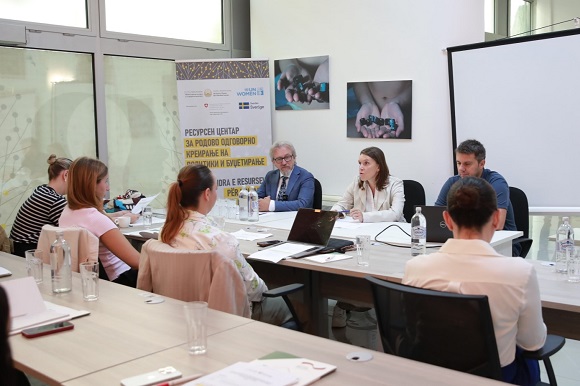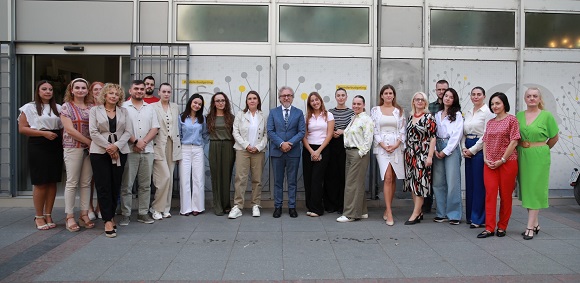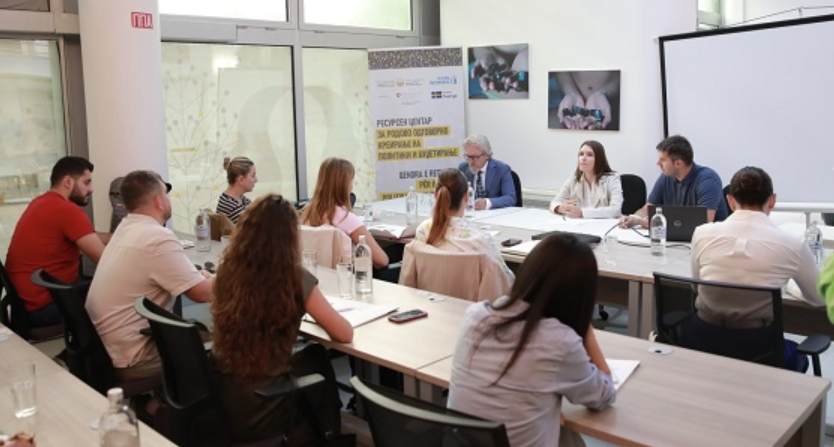Minister of Social Policy, Demography and Youth, Fatmir Limani, today welcomed the young participants of the Summer School on Gender Equality, taking place from August 25–28 at the Resource Center for Gender-Responsive Policy Making and Budgeting.
The Summer School brings together young people up to the age of 35 from across the region — primarily public administration employees — with the aim of strengthening their knowledge of gender equality and helping them understand the benefits of integrating a gender perspective into public policies and budgets. The event is organized in cooperation with the German Society for International Cooperation – GIZ.
The Republic of North Macedonia has made a significant step forward in this field by establishing a Resource Center for Gender-Responsive Policy Making and Budgeting — an institutional mechanism that enables the systematic and sustainable implementation of gender-responsive budgeting.
“Your participation here, coming from different countries across the region, is of exceptional importance. Gender equality knows no borders — our challenges are shared, but so are the solutions. I believe this Summer School will be a place where these ideas will grow, strengthen, and transform into concrete initiatives that will find their way into your institutions and communities. Investing in equal opportunities for all citizens is an investment in our future — in a better, fairer, and stronger society,” said Minister Limani.

Svetlana Zdravkovska, Project Manager at GIZ, addressed the young participants, emphasizing that GIZ supports institutions at both central and local levels in implementing the reform agendas of the Western Balkan countries.
“Among the key priorities in these agendas are the development of gender-sensitive policies, the introduction of gender-responsive budgeting, and ensuring inclusion. These priorities contribute to building just and sustainable societies. Furthermore, their importance is recognized within the Berlin Process, which aims to promote democratic and inclusive societies through regional cooperation. Gender equality, as a driver of regional progress, is a crucial message underscoring the fact that without gender equality, these goals cannot be achieved,” Zdravkovska said.

The speakers encouraged the youth to actively participate, exchange views, and present concrete proposals that would contribute to strengthening public policies and the institutional practices in their respective countries.

